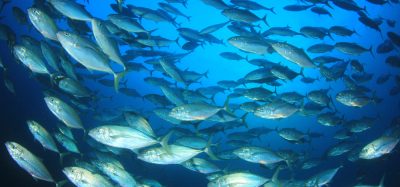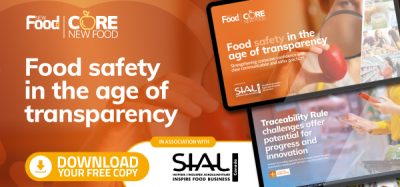What does the General Election mean for food science? IFST
- Like
- Digg
- Del
- Tumblr
- VKontakte
- Buffer
- Love This
- Odnoklassniki
- Meneame
- Blogger
- Amazon
- Yahoo Mail
- Gmail
- AOL
- Newsvine
- HackerNews
- Evernote
- MySpace
- Mail.ru
- Viadeo
- Line
- Comments
- Yummly
- SMS
- Viber
- Telegram
- Subscribe
- Skype
- Facebook Messenger
- Kakao
- LiveJournal
- Yammer
- Edgar
- Fintel
- Mix
- Instapaper
- Copy Link
Posted: 30 May 2017 | IFST | No comments yet
Ahead of the UK General Election on 8 June 2017, the Institute of Food Science & Technology has updated its policy in three priority areas.


The Institute has identified three key areas for its members across the food science profession – Food Science Education, Sustainable Food Systems and Brexit. The Institute is also looking through party manifestos as they come out to consider what each of the parties is promising in those areas.
Food Science Education
IFST calls on government to recognise that food is an excellent vehicle to teach children science, supporting priorities in public health, an innovative economy, and the need to move towards a more sustainable food system. With the loss of food science A levels, the next government needs to do more to encourage the integration of food topics into the science curricula for secondary school children. The only secondary qualification dealing with food, the Food Preparation and Nutrition GCSE, while having scientific elements in the curriculum, has a greater emphasis on the skills of food preparation and cooking and will not automatically be seen as a core GCSE for those wanting to pursue a career in food science.
Sustainable Food System
With the outgoing government’s Food and Farming plan further delayed by the election process, there is still no clear indication of any policies that will progress the UK to a more sustainable food system, one that encompasses the aspects of social, environmental and economic sustainability. The complexity of the food system means that a ‘systems’ (or ‘joined up’) approach is necessary if effective policy responses are to be developed by business and government. Then need is great; growing environmental pressures, including climate change, soil degradation, disruption of water cycles, expanding pathogen ranges and increasing regularity of extreme weather events, coupled with population growth and migration impact on and will continue to affect the food system
Brexit
IFST has set out its challenges for Brexit on maintaining access to skills, research funding and collaboration to ensure a competitive and innovative food system. Specifically, the Institute has called for:
- A fit-for purpose legislative framework.
- Research funding of an appropriate level to drive scientific discovery and innovation
- Government, academia and industry UK food system have access to appropriate skills in food science and technology
- Supply of sufficient safe, affordable, nutritious and sustainable food
As a charity and professional body that is independent of government, industry and any other organisation, IFST is not endorsing any party.
For more information about what party manifestos say about each area and what IFST is doing, please visit http://www.ifst.org/about-ifst/policy.







